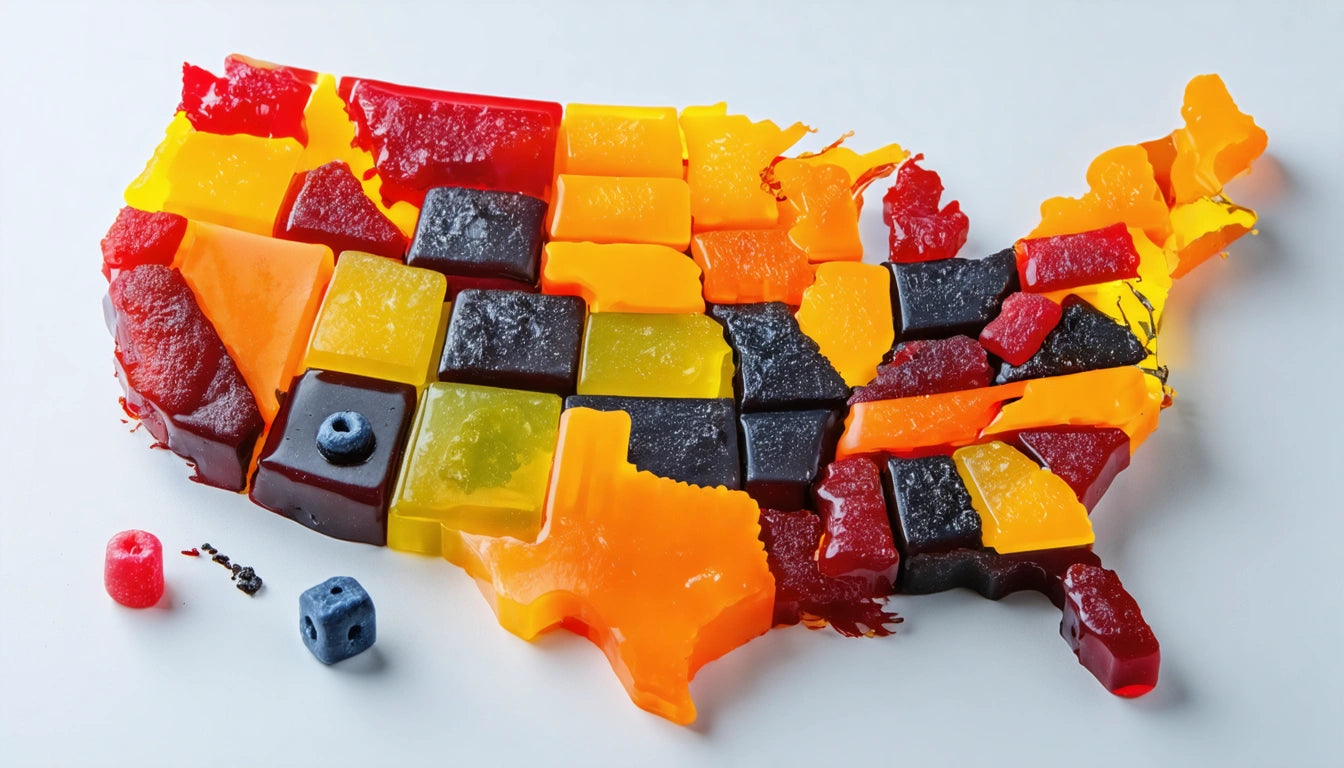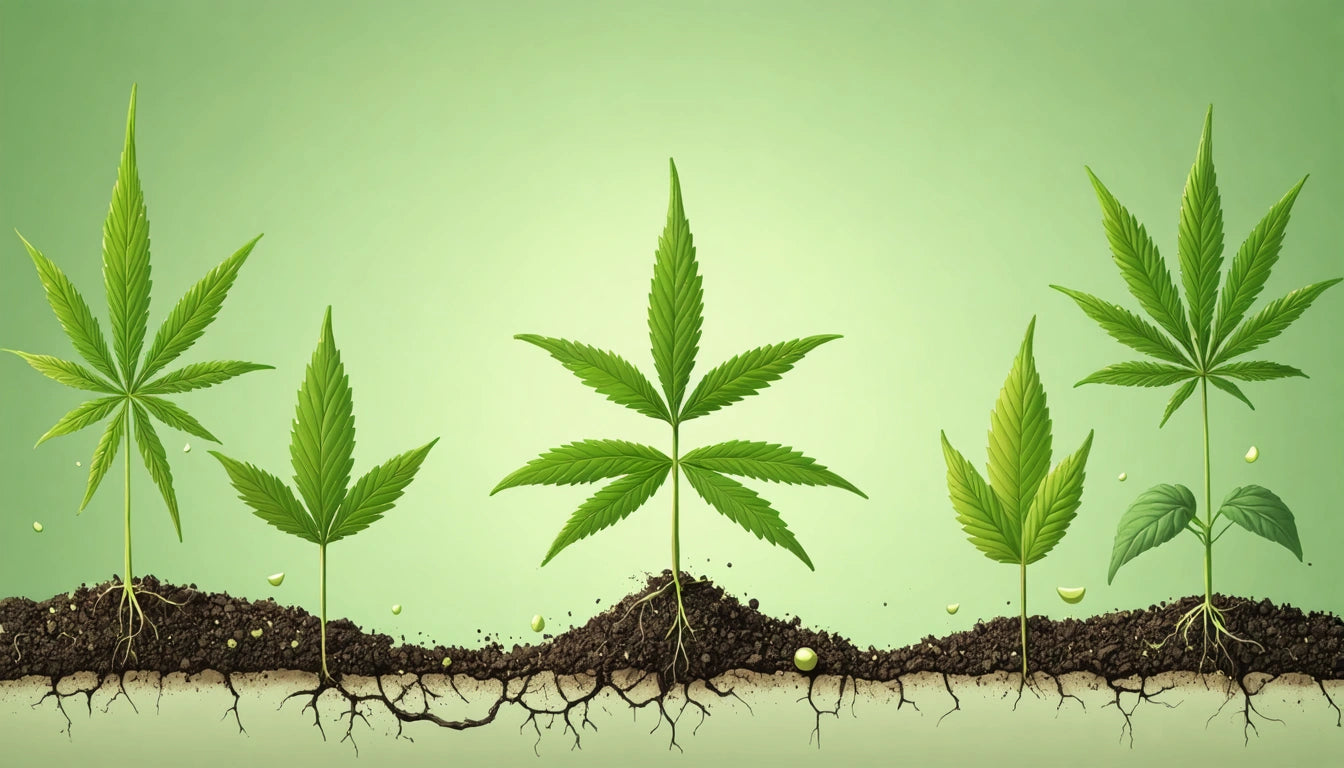Table of Contents
- CBD and THC: Basic Differences and Similarities
- The Entourage Effect: How CBD and THC Work Together
- Does CBD Counteract THC? Understanding the Balancing Act
- THC:CBD Ratios Explained: Finding Your Ideal Balance
- CBD's Impact on THC Tolerance and Consumption
- Selecting the Right Products for Your Desired Effects
- Emerging Research and Future Applications of CBD-THC Combinations
Understanding the Interaction Between CBD and THC: Ratios, Effects, and Benefits
The relationship between cannabidiol (CBD) and tetrahydrocannabinol (THC) represents one of the most fascinating aspects of cannabis science. These two prominent cannabinoids interact in complex ways, creating effects that differ significantly from when either compound is used alone. This guide explores their synergistic relationship, optimal ratios, and how to harness their combined potential for specific therapeutic outcomes.
CBD and THC: Basic Differences and Similarities
While both CBD and THC are cannabinoids that interact with the body's endocannabinoid system, they produce markedly different effects. THC is known for its psychoactive properties that create the characteristic "high" associated with cannabis use. In contrast, CBD does not produce intoxicating effects but offers potential therapeutic benefits.
The CBD effect vs THC comparison reveals important distinctions:
- THC binds directly to CB1 receptors in the brain, triggering psychoactive effects
- CBD has low binding affinity for CB1 receptors but modulates their activity
- THC typically produces euphoria, altered perception, and potential anxiety
- CBD is associated with relaxation without intoxication and potential anxiety reduction
The Entourage Effect: How CBD and THC Work Together
The entourage effect describes how cannabis compounds work synergistically, producing effects greater than the sum of their parts. When combining THC and CBD, users often experience enhanced therapeutic benefits with reduced side effects. This synergy extends beyond just these two cannabinoids to include terpenes and other compounds.
Research suggests that CBD may enhance certain THC effects while mitigating others. For example, CBD may prolong THC's pain-relieving properties while reducing its psychoactivity. This explains why many medical cannabis users prefer products containing both cannabinoids rather than isolated compounds.
Highlight: The question "does CBD need THC to work?" has a nuanced answer. While CBD can provide benefits independently, the presence of THC often enhances its therapeutic potential through the entourage effect, particularly for conditions like chronic pain and inflammation.
Does CBD Counteract THC? Understanding the Balancing Act
Many users wonder: does CBD cancel out THC? Research indicates that CBD can modulate THC's psychoactive effects by indirectly influencing how THC binds to CB1 receptors. This doesn't mean CBD completely neutralizes THC, but rather it can reduce certain unwanted effects like anxiety or paranoia that sometimes accompany THC consumption.
When asking "does CBD counteract THC?" consider these mechanisms:
- CBD may reduce THC's binding efficiency at CB1 receptors
- CBD appears to mitigate THC-induced anxiety and cognitive impairment
- CBD can extend THC's therapeutic effects while tempering its intensity
For those sensitive to THC's effects, incorporating CBD may provide a more balanced, comfortable experience without eliminating beneficial effects.
THC:CBD Ratios Explained: Finding Your Ideal Balance
Common Ratios and Their Effects
Understanding what different ratios mean can help users select products aligned with their needs:
- 1:1 CBD/THC ratio - Balanced effects with moderate psychoactivity and therapeutic benefits
- 1:2 CBD:THC - Stronger psychoactive effects with some CBD modulation
- 2:1 CBD:THC - Mild psychoactivity with pronounced therapeutic effects
- 20:1 CBD:THC - Minimal psychoactivity with focus on CBD's benefits
When considering the best THC:CBD ratio for euphoria, many users report that 2:1 or 1:1 THC:CBD ratios provide pleasant euphoric effects with reduced anxiety compared to THC alone.
Therapeutic Applications of Different Ratios
Different conditions may respond better to specific ratios:
- Pain management often benefits from 1:1 ratios
- Anxiety may respond better to CBD-dominant formulations (2:1 or higher CBD)
- Sleep issues might improve with slightly THC-dominant evening formulations
- Inflammatory conditions may respond to balanced or CBD-dominant products
For preserving the potency and effectiveness of your products, proper storage is essential. Many users incorporate humidity control packs in their storage containers to maintain optimal moisture levels and preserve terpenes that contribute to the entourage effect.
CBD's Impact on THC Tolerance and Consumption
A common question is "does CBD lower THC tolerance?" While research is still emerging, preliminary evidence suggests CBD might influence how the body processes THC. Some studies indicate that regular CBD consumption could potentially slow the development of THC tolerance by modulating endocannabinoid system function.
CBD's interaction with liver enzymes that metabolize THC may also play a role in how THC affects users when consumed together. This complex relationship explains why some people report different experiences when using THC with CBD versus THC alone.
Selecting the Right Products for Your Desired Effects
When choosing products that combine delta 9 THC and CBD, consider:
- Your experience level with cannabis
- Specific therapeutic goals
- Preferred consumption methods
- Legal considerations in your region
For beginners, starting with high-CBD, low-THC products allows for gradual adjustment. More experienced users might experiment with different ratios to find their optimal balance. Starting with a low dose and gradually increasing is always recommended, particularly when exploring new cannabinoid combinations.
It's worth noting that hemp-derived THC products may offer different effects compared to marijuana-derived options, even at identical ratios. This is partly due to the different minor cannabinoid and terpene profiles typically present in each source material.
Emerging Research and Future Applications of CBD-THC Combinations
The science of cannabinoid interactions continues to evolve, with researchers exploring how other cannabinoids like CBG might further influence the CBD-THC relationship. Some studies suggest that CBG may also counteract certain THC effects while enhancing others, adding another dimension to cannabinoid formulation.
As research into cannabinoids expands, we're likely to see more precisely targeted formulations designed for specific conditions. The future may bring personalized cannabinoid profiles based on individual endocannabinoid systems and health needs.
Understanding the complex interplay between CBD and THC represents just the beginning of cannabinoid science. As research progresses, consumers will benefit from increasingly sophisticated products designed to harness the full therapeutic potential of the cannabis plant.











Leave a comment
All comments are moderated before being published.
This site is protected by hCaptcha and the hCaptcha Privacy Policy and Terms of Service apply.